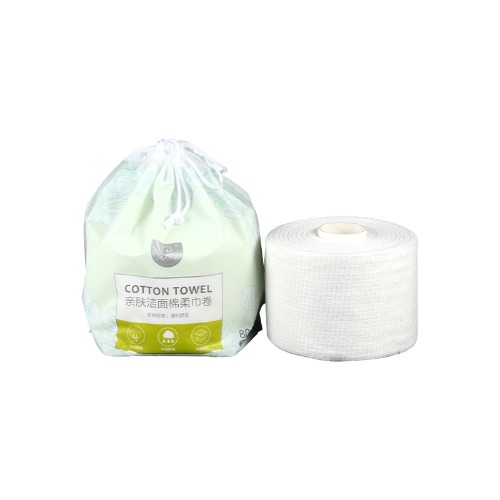News
Home / News / Industry News / Chemical Composition of Soft Facial Tissue and The role of Soft Facial Tissue
News
Chemical Composition of Soft Facial Tissue and The role of Soft Facial Tissue
Soft facial tissue, commonly used for personal hygiene and skincare purposes, is typically made from a combination of natural and synthetic materials. The chemical composition of soft facial tissue can vary depending on the specific brand and manufacturing process. However, here are the general components that may be found in soft facial tissue:
Cellulose Fibers: Soft facial tissues are primarily composed of cellulose fibers derived from wood pulp. Cellulose is a naturally occurring polymer found in the cell walls of plants. These fibers provide the softness, absorbency, and strength needed for facial tissue.
Water: Water is an essential component used during the tissue-making process. It helps in the formation and bonding of the cellulose fibers and aids in the manufacturing process.
Additives: Various additives may be incorporated into soft facial tissues to enhance their performance and properties. These additives can include:
Softeners: Softeners such as emollients or surfactants may be added to improve the softness and smoothness of the tissue, making it gentle on the skin.
Wet Strength Agents: Wet strength agents are chemicals that increase the tissue's strength and durability when wet, preventing it from tearing or disintegrating easily upon contact with moisture.
Fragrances: Some facial tissues may contain fragrances to provide a pleasant scent when used.
Preservatives: Preservatives may be used to inhibit the growth of microorganisms and extend the shelf life of the tissue.
Brighteners: Optical brighteners may be added to enhance the visual appearance of the tissue, making it appear brighter and whiter.
Binders and Adhesives: Binders and adhesives may be used during the tissue-making process to bind the cellulose fibers together and create a cohesive structure.
Meanhwhile,Soft facial tissue plays a vital role in personal hygiene and skincare routines. Here are some key roles of soft facial tissue:
Cleansing: Soft facial tissue is primarily used for cleansing the face. It helps to remove dirt, oil, and impurities from the skin, providing a gentle and convenient cleansing solution. Tissue can be used with water or in combination with facial cleansers, makeup removers, or toners to effectively clean the skin.
Makeup Removal: Soft facial tissue is commonly used for makeup removal. It is gentle on the skin and can be used to wipe away makeup, including foundation, lipstick, mascara, and eyeshadow. The softness and absorbency of the tissue help to lift and remove makeup without causing excessive friction or irritation.
Drying: After washing the face or applying skincare products, soft facial tissue is used for drying. It helps to remove excess moisture from the skin, leaving it clean and ready for further skincare steps. Drying the skin with tissue can be more hygienic than using shared towels, reducing the risk of transferring bacteria or contaminants.
Toner Application: Soft facial tissue can be used for applying toners or astringents to the skin. It allows for precise and controlled application, ensuring even distribution of the product across the face. The tissue helps to remove any residual dirt or impurities while applying the toner, promoting a fresh and clean complexion.
Facial Masks: Soft facial tissue is often used in combination with facial masks. It can be used to remove excess mask product or to gently pat the skin after mask removal, aiding in the absorption of remaining serums or essences.
Sensitive Skin Care: Soft facial tissue is suitable for individuals with sensitive skin. Its soft and gentle texture minimizes the risk of irritation or damage to delicate skin. Soft tissue is less likely to cause redness, stinging, or allergic reactions, making it a preferred choice for those with sensitive or reactive skin types.
Hygiene and Convenience: Soft facial tissue offers convenience and hygiene benefits. It provides a disposable option for personal care, eliminating the need to reuse towels or cloths. Tissue can be easily carried in travel packs or pocket-sized packs, allowing for on-the-go cleansing or touch-ups.
Overall, soft facial tissue plays a crucial role in maintaining clean, healthy, and refreshed skin. Its gentle nature, absorbency, and convenience make it a staple product in personal care routines, offering a versatile and effective solution for various skincare needs.





 中文简体
中文简体 русский
русский Português
Português Español
Español









